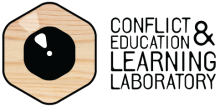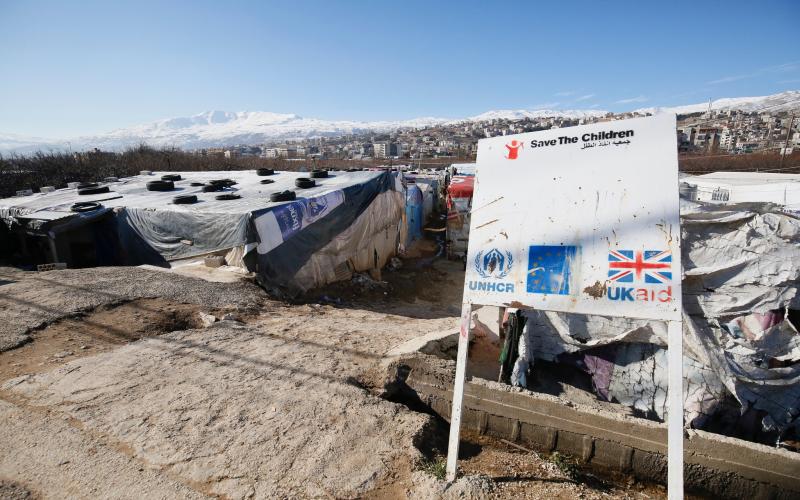In Zahle, about an hour from Beirut, is an informal settlement of Syrian refugees. A place where some have been living for nearly seven years. Children playing there haven’t seen anything but the tarp dwellings that have logos of sponsors, and are patched up by anything that the dwellers can find for cheap. Young girls are married off early, and young boys are often working in harsh back-breaking conditions. The winter is severe, and the resources are scarce.
Life is neither easy there, nor fair. Yet, even these conditions are better than Syria, and people are willing to do anything to leave. Earlier this week, fifteen Syrians were frozen to death as they tried to cross the border. Among them were children, just like the ones playing in Zahle.
The camp in Zahle is far from where I live in Boston, but a programme organised by the American University of Beirut, myself and Johns Hopkins took me there earlier this month. The idea was simple: to think about ways in which students, scholars, faculty and practitioners could work together to ease the burden of life on these refugees, most of whom don’t want anything but to go back to their homes. The dreams of the people there are just as fundamental as those of my friends and family. A stable home, a peaceful neighbourhood and a dignified existence. They don’t have any of that right now. They have been robbed of that, not because of what they did, but because what we in the rest of the world did not do, to protect them.
The lesson from the camps was straight forward — to innovate with humility and humanity.
The winter school, where I had the pleasure of meeting some of the brightest minds in the field, and some of the most passionate students who want to work for a more just world, focused on innovation. Innovation was front and centre of the conversation, from new ideas and new ways of implementation. The temptation to find the perfect gadget, the next best app, the hardware solution to cure all ills was there. Yet, a trip to Zahle, checked that temptation before we got carried away. My students, those who came from Boston and those who came from Beirut, realised that there is no app to bring dignity, no gadget to ensure justice. There is indeed room and need for new solutions, but the focus should not be on how cool they are, but how they fit into the system. They realised that engineering solutions, devoid of a humanist approach, do nothing but provide bragging rights to the developer. The problems faced by an ageing diabetic mother, who is exploited by the local pharmacy, by the young child bride who faces domestic violence, or by a father of six who suffers from chronic depression are not in need of a silver bullet. They are in need of solutions that bring people from across disciplines, each offering something that is precious and valuable.
The lesson from the camps was straight forward — to innovate with humility and humanity. Humility in recognising that engineering alone will never solve the biggest challenges of our time, and humanity in knowing that if the solution does not ease the suffering of the humans in the crosshairs of injustice, it is not a real solution.
The temptation to pin all our hopes on fancy gadgets and buzzwords is endemic. This is the same temptation that many in the developing world find irresistible when they speak of an IT revolution that will solve our biggest social problems. But the lesson from Zahle is not just a lesson for my engineering students. It is also a lesson for governments that sacrifice arts and humanities in the name of development.
In the last tent that I visited, I saw twins who had created their own game with a broken piece of plastic and a piece of cloth. They were excited, happy and oblivious to the injustice around them. When I smiled at them they laughed with the infectious laugh that brought, for a moment, warmth in their frigid tent.♦
About the Author
Muhammad H. Zaman is Howard Hughes Medical Institute Professor of Biomedical Engineering and International Health at Boston University. Prof. Zaman’s current research is focused on three areas namely using quantitative tools to understand tumor metastasis, developing robust technologies for high-value healthcare problems in the developing world, particularly in the area of maternal and child health and working on health and innovation policy issues in developing nations. Technologies developed by Prof. Zaman are in various stages of implementation in several countries. In 2013, Scientific American named a technology from Zaman lab, PharmaChk, among the 10 technologies that will change the world.
He has won numerous awards for his research and teaching from IEEE, FEBS, American Society for Engineering Education, USAID, The US National Academy of Sciences, The University of Texas System, Boston University and other national and international organizations. In addition to his research, Prof. Zaman is actively engaged in bringing quality engineering education in several developing nations.
This article originally appeared in The Express Tribune on January 23rd, 2018 and has been reproduced by permission.
Image Credit: Russell Watkins/DFID

